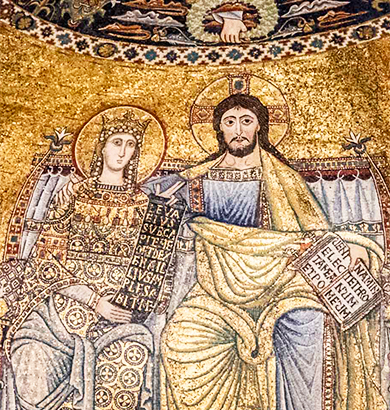|







|
|
|
|
Reading
of the Word of God
Praise
to you, o Lord, King of eternal glory
I
am the good shepherd
My sheep listen to my voice
And they will become
One flock and one sheepfold.
Praise
to you, o Lord, King of eternal glory
Luke 23, 1-12
|
The whole assembly then rose, and they brought him before Pilate.
They began their accusation by saying, 'We found this man inciting our people to revolt, opposing payment of the tribute to Caesar, and claiming to be Christ, a king.'
Pilate put to him this question, 'Are you the king of the Jews?' He replied, 'It is you who say it.'
Pilate then said to the chief priests and the crowd, 'I find no case against this man.'
But they persisted, 'He is inflaming the people with his teaching all over Judaea and all the way from Galilee, where he started, down to here.'
When Pilate heard this, he asked if the man were a Galilean;
and finding that he came under Herod's jurisdiction, he passed him over to Herod, who was also in Jerusalem at that time.
Herod was delighted to see Jesus; he had heard about him and had been wanting for a long time to set eyes on him; moreover, he was hoping to see some miracle worked by him.
So he questioned him at some length, but without getting any reply.
Meanwhile the chief priests and the scribes were there, vigorously pressing their accusations.
Then Herod, together with his guards, treated him with contempt and made fun of him; he put a rich cloak on him and sent him back to Pilate.
And though Herod and Pilate had been enemies before, they were reconciled that same day.
|
Praise
to you, o Lord, King of eternal glory
I
give you a new commandment
That you love one another.
Praise
to you, o Lord, King of eternal glory
|
|
|

|
![]()